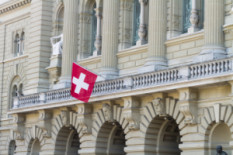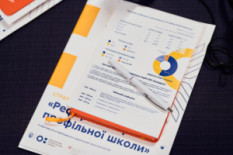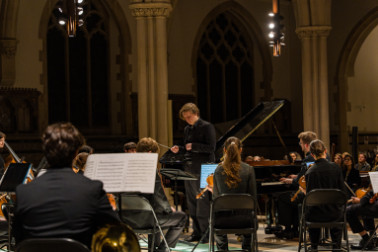The Swiss government is involved in education reform, helping both with funding and information, as Swiss high school and specialized education is a model for many educational systems around the world. Ukraine also has much to learn.
The introduction of specialized secondary education in Ukraine involves the creation of a network of specialized secondary education institutions, infrastructure renewal, development of new modern educational content, introduction of a new model of organizing the educational process. It also involves strengthening human resources.
The first stage of preparing the High School Reform Strategy
For these changes to be successful, a thorough audit and analysis of the country's existing educational resources is required. This is where preparations for the reform began 8 months ago with the support of Switzerland under the DECIDE project.
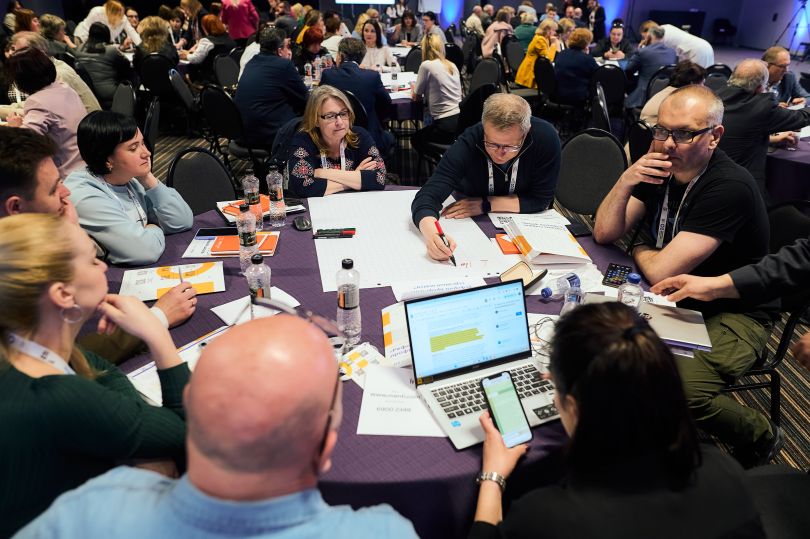
On April 9, 2024, more than 400 educational experts, including heads of educational authorities, educators, heads of territorial communities, international projects and programs, and NGOs, had the opportunity to learn about the first results of the analytical work of the Ministry of Education and DECIDE and discuss the information received at a strategic session.
The results of the following were presented at the event:
- a comprehensive study of the prerequisites for the development of specialized secondary education in Ukraine, which covers the issues of human resources, content and quality of education, financing and educational infrastructure;
- forecast estimates of the number and gender-age distribution of the population;
- approaches to forming a promising network of academic lyceums and vocational colleges.
All participants of the strategic session contributed to the development of a specialized secondary education vision and strategic goals of the reform.
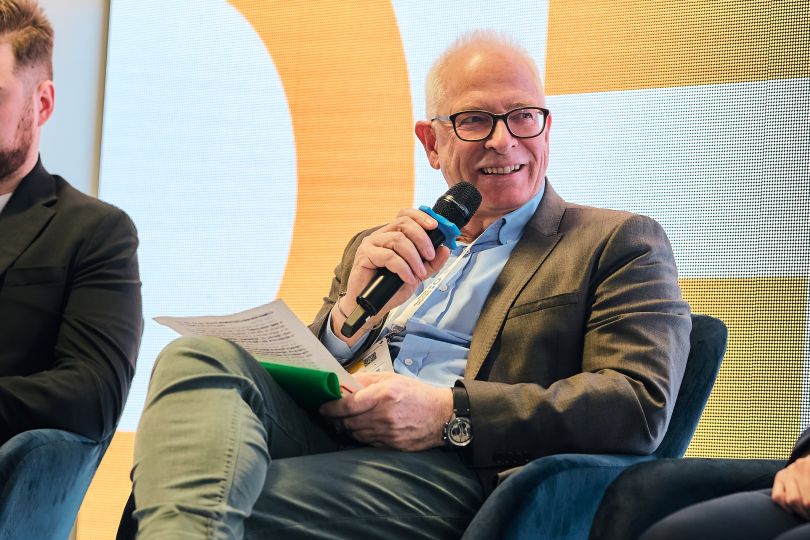
Andreas Huber, Director of the Cooperation Program at the Embassy of Switzerland in Ukraine, emphasized that even in times of war, it is necessary to talk about the future, recalled Switzerland's support for Ukraine since 2009, assistance in rebuilding shelters in schools and the recently opened underground school in Kharkiv, and stressed the close connection between decentralization and education reforms:
«We are confident that decentralization is the key to Ukraine's ability to sustain the reform. Because life really begins with communities, and it is through decentralization that Switzerland supports education reform during the war. We contribute to all efforts aimed at improving education and making the learning process of high quality».
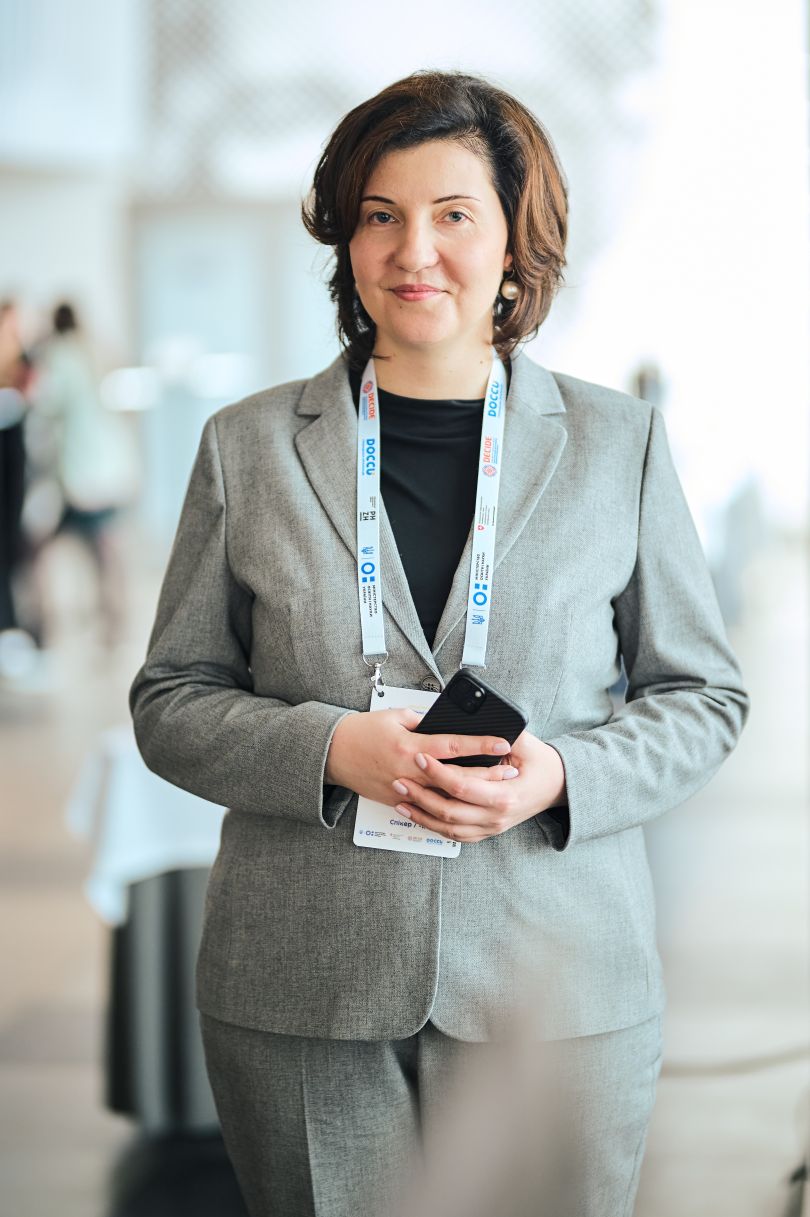
Valentyna Poltorak, DECIDE Project Manager, emphasized that the creation of high-quality and accessible specialized secondary education should continue despite the war, as children are growing up, they cannot wait, but must study within the framework of the NUS (New Ukrainian School), a reform that started 7 years ago. In addition, it may help to bring children back from abroad, Ms. Poltorak believes.
«Despite all the challenges of war and economic difficulties, we realize that we may not have another, more favorable time to implement the reform. The students who are currently in the 6th grade will go to the 10th grade of the New Ukrainian School in 2027 no matter what. And our task is to ensure that they go to a modern school where they will be interested in learning and developing. This is not the first strategic session as part of the specialized school reform. Expert sessions with more than 400 leading experts were held throughout the year, and none of them said that the reform should not be implemented. If we create all the necessary prerequisites for the development of specialized secondary education in a timely and high-quality manner, this will make it possible to lay the foundations for the restoration of our country. And we are confident that together we will find a solution for every child that will allow them to stay in Ukraine and build their future here», said Valentyna Poltorak.
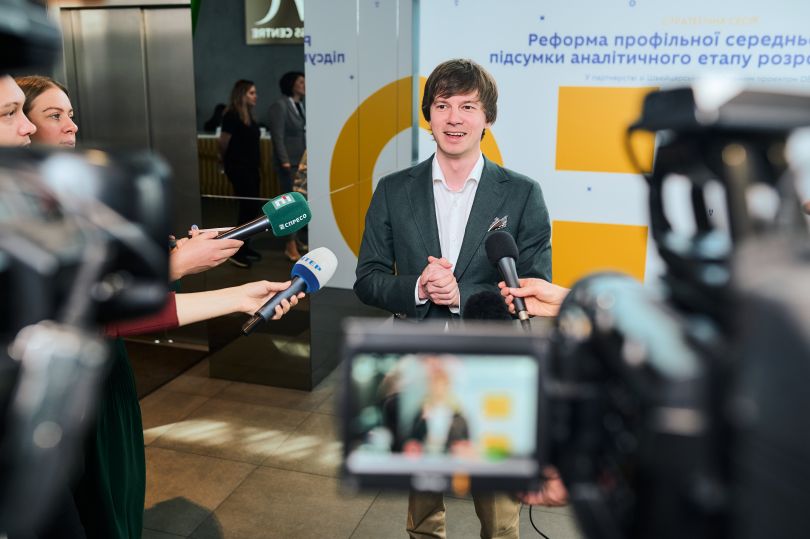
Dmytro Zavhorodnyi, Deputy Minister of Education and Science of Ukraine, in his speech elaborated on the main tasks of the reform and the roadmap for its implementation.
«For me, the main problem in specialized secondary education, in particular, in general secondary education institutions (GSEIs), is the lack of choice for high school students. When there is a choice, a child learns to take responsibility. Another equally important issue in modern education is the inequality between rural and urban students, which we must overcome», the Deputy Minister of Education and Science emphasized.
Dmytro Zavhorodnyi said that in the 2029-2030 academic year, Ukraine will for the first time start a stage when more students will graduate from schools than enter academic lyceums, as the graduation grade will be 12, not 11. However, due to the demographic crisis, the number of students is expected to decrease.
According to the scenario of the Ptukha Institute of Demography and Social Studies of the National Academy of Sciences of Ukraine, the population in 2036 will decrease from 31.7 million people in 2023 to 27.6 million people in 2036. This should also be taken into account when planning the network of educational institutions as part of the high school reform.
Therefore, the Ministry is now focusing on planning a network of educational institutions that takes into account both educational and demographic changes. Particular attention is paid to educational institutions in rural areas.
The role of the Swiss government and the DECIDE project
Mr. Deputy Minister of the Ministry of Education and Science of Ukraine gave a comment for our publication, in which he emphasized how important the assistance of the Swiss government and the DECIDE project is:
«We have many joint projects with DECIDE. Our acquaintance began with the creation of the All-Ukrainian Online School, which they supported at the beginning of the pandemic.
Now we have a very serious partnership and many joint projects. One of them concerns the reform of vocational and specialized education.
We receive a lot of help from the University of Zurich, which cooperates with DECIDE. It has an extensive database on career guidance, career counseling, etc. We are talking about a 2 million franc project. Half of the budget will be spent on the infrastructure component, including the creation of workshops where career guidance classes in various professions can be held.
But so far, the largest assistance from Switzerland and DECIDE is related to the strategy for reforming the high school. The partners, in particular, made this event possible. They took over the financing of the entire analytical component, were directly involved in modeling the network of vocational education institutions, and the Institute of Demography made a demographic analysis specifically commissioned by DECIDE».
Mr. Zavhorodnyi also noted that the cooperation envisages dozens of strategic sessions on the reform with all stakeholders to involve them in the development of the strategy and its implementation. All the work in the context of this preparatory phase, as well as the piloting of the high school reform, will be carried out with the support of the Swiss government and DECIDE.
Some results of the research within the preparatory stage of the reform
Dmytro Lyvch, partner at CIVITTA, presented a comprehensive study of the prerequisites for introducing specialized secondary education in Ukraine. The purpose of the study was to analyze the current number of students, the network, and financing of educational institutions, and to study international experience in order to develop solutions for the programmatic part of the strategy.
In particular, Dmytro Lyvch said that 1.2 million people are currently studying in grades 4-6. These are the children who will study in academic or vocational lyceums in 2027-2030. However, given the current demographic situation, the number of students in specialized secondary education will decline starting in 2030, and this is important to take into account when planning the network of educational institutions.
According to the study, the design capacity of general secondary education institutions is 5.72 million people, which is 1.75 million more than the number of students. The institutions are about 70% full. According to Dmytro Lyvch, the problem is their uneven occupancy. For example, in schools of Ternopil and Cherkasy regions, 53-57% of students study compared to the design capacity of schools, while Kyiv and Volyn regions have the highest filling rate — 78-83%. The situation is similar in vocational and vocational education institutions. Dormitories are about 55% full, which may be a potential for further use of this network as part of the reform.
Another challenge, according to the expert, is to raise the prestige of future vocational lyceums. As of today, only 35% of students (in EU countries, the figure is 50-70%) choose to continue their education in vocational or professional higher education after completing grade 9. However, the demand for specialists is growing in view of the need to restore the country, and, accordingly, the state needs to train more specialists in blue-collar occupations.
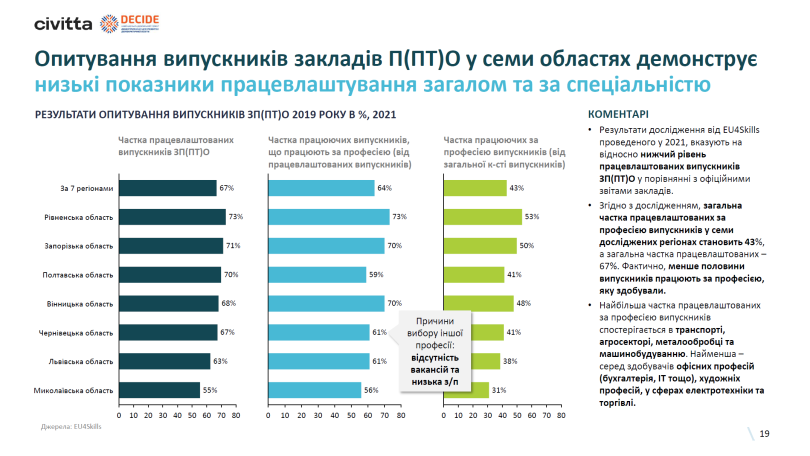
There is another problem:
«There is a tendency that only 43% of graduates of vocational (vocational-technical) education institutions work in their profession. The reason for this may be that graduates do not want to get a job in the field they studied, or the chosen profession does not meet the needs of the market, because the demands and needs of the market are changing rapidly due to the development of technology, innovation, and wartime needs. That is why we need to pay more attention to careful regional ordering», emphasized Dmytro Livch.
The next stage of developing the Strategy for implementing the reform of specialized secondary education will begin with public discussions in the regions of Ukraine.
